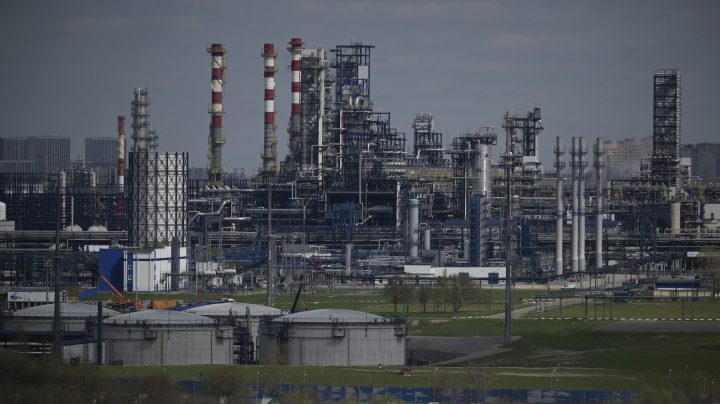
What does the price cap on Russian oil mean for global oil prices?
What does the price cap on Russian oil mean for global oil prices?

The price of a barrel of Brent Crude — the global oil benchmark — has fallen to $78 a barrel. That’s its lowest level this year and, perhaps most notably, the lowest since Russia’s invasion of Ukraine in February. This week, the U.S. and its allies also implemented a price cap on Russian oil moved by sea, set at $60 a barrel.
The price cap was designed to limit Russian oil revenues while keeping the oil itself flowing to avoid a global price shock. Oil prices, which have spiked well above $100 a barrel several times this year, have helped fund Putin’s war effort, according to Eli Tesfaye, senior market strategist at RJO Futures.
“Here’s the thing,” he said. “The world cannot end the war in Ukraine with $100 a barrel. It’s impossible. So crude oil has to come down.”
After debating how high to set the price cap on Russian oil, Western allies finally landed on the $60-a-barrel number. That’s relatively high compared to what some nations were pushing for, helping ease nerves in the marketplace, according to Ben Cahill, senior fellow at the Center for Strategic and International Studies.
“I think what it does signal is that it’s not going to create this sort of turbulence in the market that we might have expected if the price cap was at $40.”
But Cahill said just three days into the price cap taking effect, it’s too early to tell what its effect will be. There are so many other factors pushing oil prices lower right now: from the global economic slowdown to the recent decision by OPEC+ to keep production steady.
The big wild card now will be Russia’s response, per Cole Smead, president at Smead Capital Management.
“Let’s just theorize that this possibly does affect Putin’s ability to sell oil,” Smead said. “Well, he just won’t. He’ll do as much as he can to slow production.”
That could lead to the same supply disruptions that the U.S. and its allies have been trying to head off. Right now though, Putin still has plenty of other buyers for Russian oil.
There’s a lot happening in the world. Through it all, Marketplace is here for you.
You rely on Marketplace to break down the world’s events and tell you how it affects you in a fact-based, approachable way. We rely on your financial support to keep making that possible.
Your donation today powers the independent journalism that you rely on. For just $5/month, you can help sustain Marketplace so we can keep reporting on the things that matter to you.

















